
FIELD STUDIES
Service Learning Trip to Chicago FarmWorks
As part of our Chicago curriculum and vision to be change agents in our community, the 10th grade helped harvest vegetables at the Heartland Alliance's urban farm, Chicago FarmWorks. After learning more about the community and people impacted by Heartland Alliance, students spent 2 hours harvesting and preparing collard greens, tomatoes, kale and other vegetables that will be taken directly to the food pantry in the Englewood community.
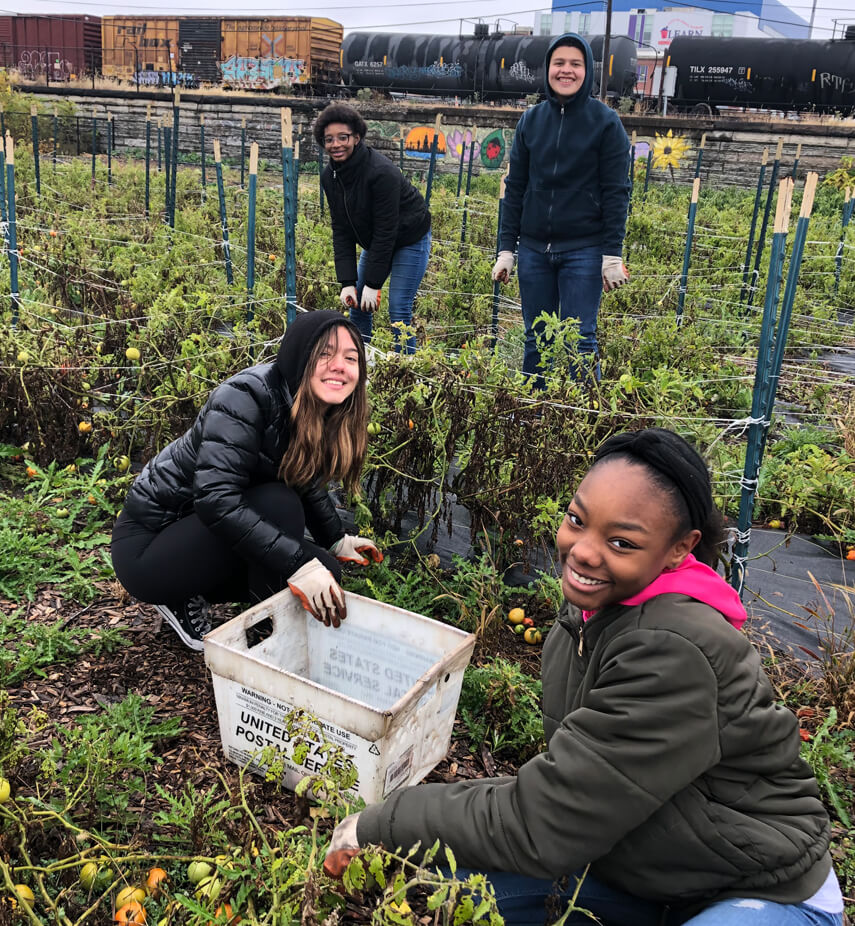

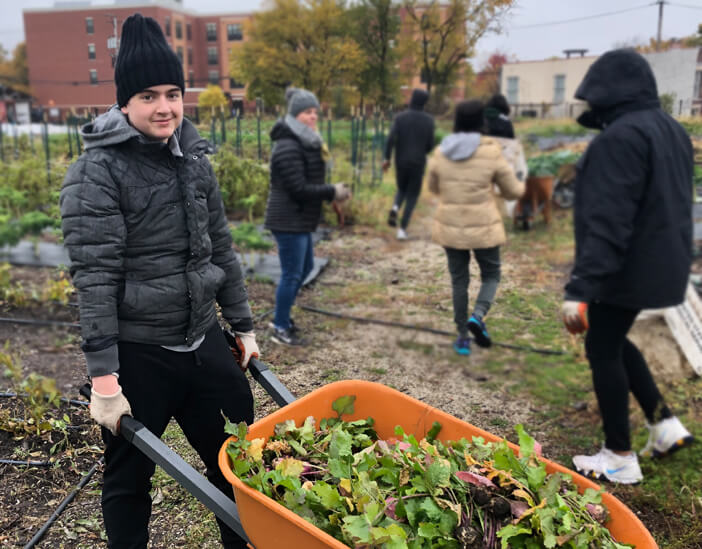

Start Exploring
The Idea
Students investigated how non-profit organizations help deal with homelessness and hunger in Chicago. They wanted to know more about how food pantries acquire fresh produce which is then distributed to those in need. Questions include: “What leads to hunger?” “How do barriers to employment lead to cycles of poverty?”
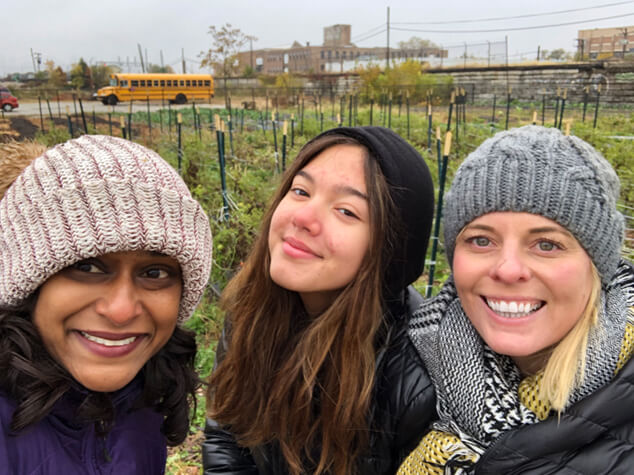
Get Ready
The Preparation
Students discussed barriers to employment such as homelessness that lead to cycles of hunger. They learned more about the history of different neighborhoods and how unequal access to food leads to areas of food deserts. They also reflected on why service learning is part of the IB curriculum and discussed other service projects they’ve completed at school or independently.
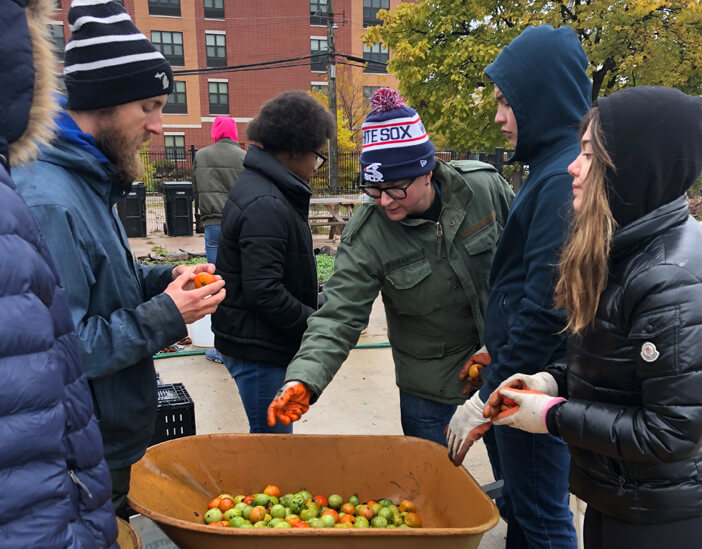
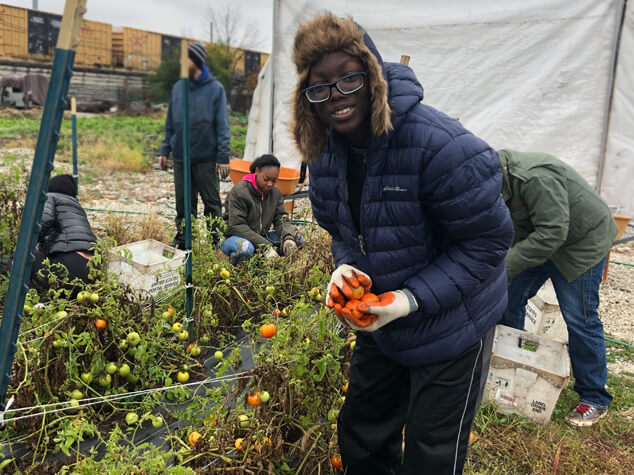
GET READY
Exploration
Students met with volunteer leaders to learn more about the history of the Heartland Alliance and the urban farm in general. Under an overcast sky and through occasional rain showers, students got dirty as they harvested crops such as collard greens. As we sorted through the harvest, students were surprised by how much produced is deemed undesirable because of the way it looks. They were surprised that blemishes on tomatoes for example usually lead to supermarkets marking them as unsellable.

GET READY
The Tools
We did not use any technology—at the farm, students used wheelbarrows and other farming tools to harvest and prep the food.

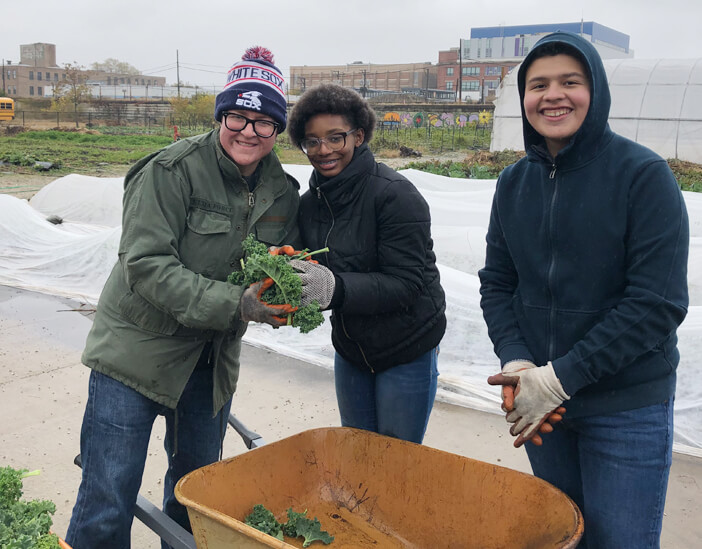

The Takeaways
Food pantries can only provide as much food as is harvested or donated. What is the real solution to hunger? What can citizens do to help address the problem in Chicago?


What's Next?
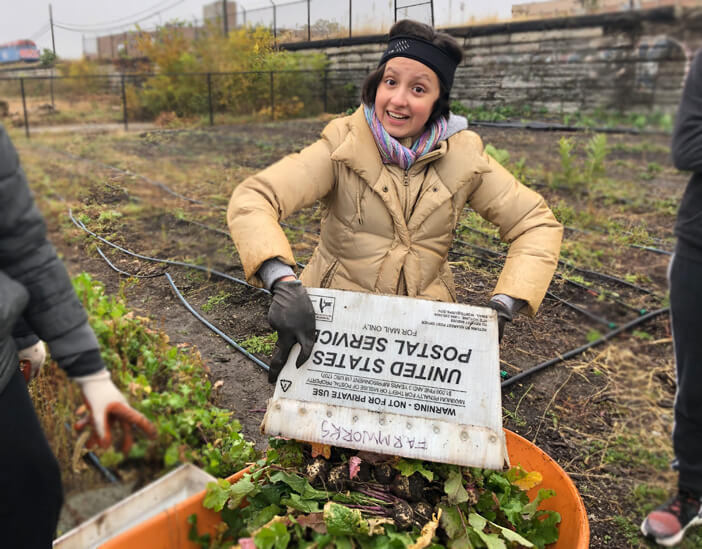
Take Action In The Community
Following this field study, students ask if we could go to a larger food pantry in another area of the city they haven’t visited before. They also brainstormed other social causes that they’d like to explore ways in addressing.

More Field Studies
Continue Exploring





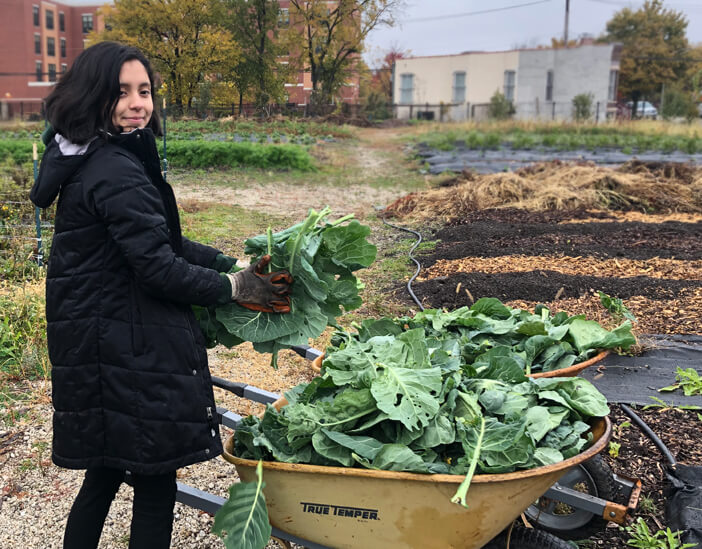
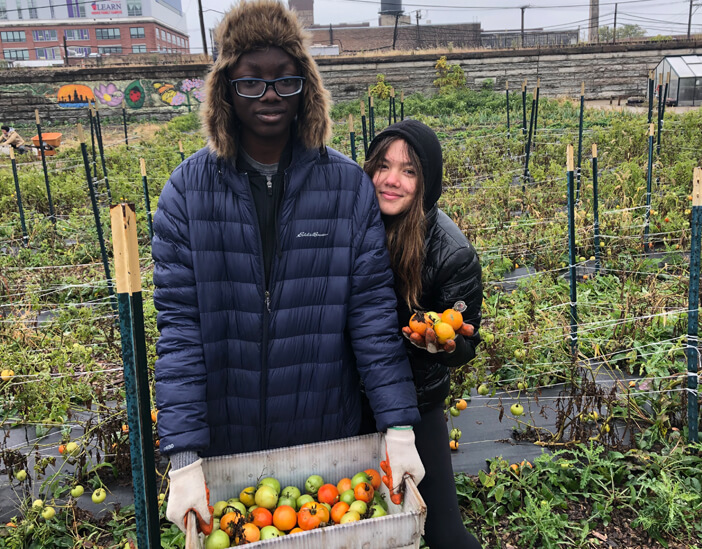

 For an optimal experience, please<br> rotate your device to portrait mode.
For an optimal experience, please<br> rotate your device to portrait mode.